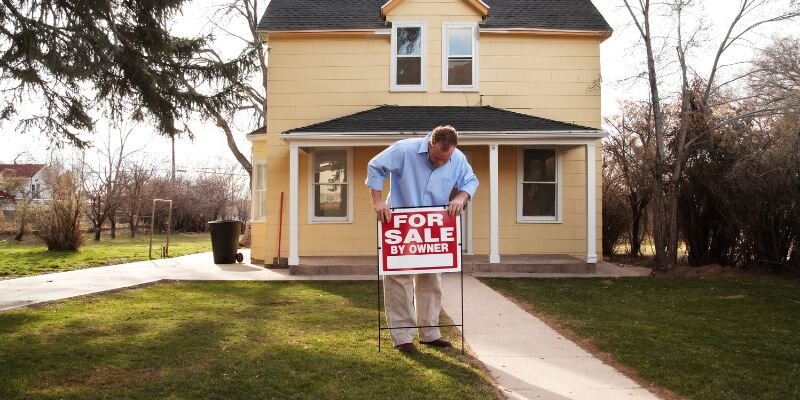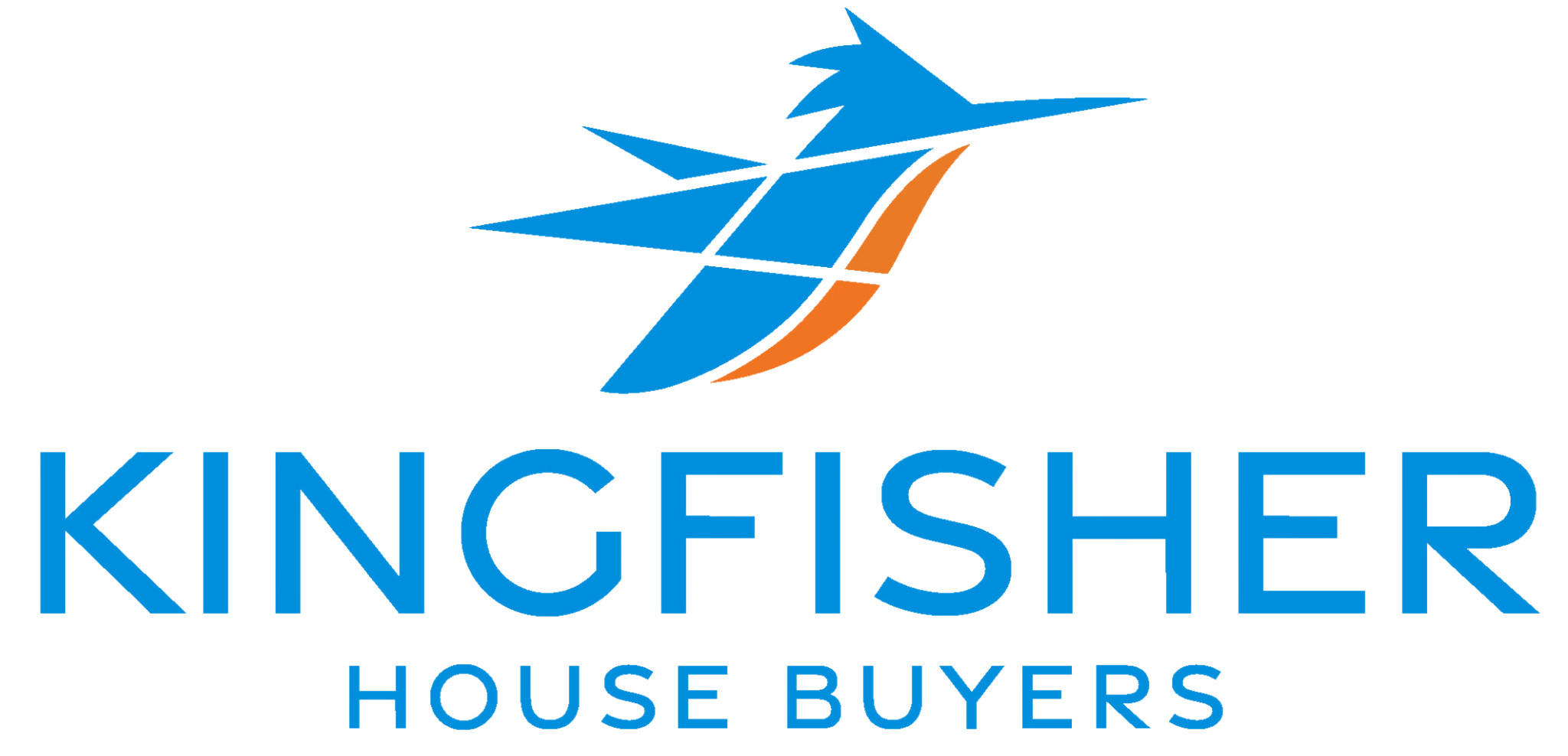
Understanding Unpermitted Work in Real Estate
Understanding unpermitted work in real estate is crucial when selling your Virginia home. Unpermitted work refers to renovations or additions completed without obtaining the necessary permits from local authorities.
Building codes and zoning laws in Virginia, like many other states, require homeowners to get permits for certain types of building or remodeling jobs to make sure they are safe and follow the rules. If you don’t do this, it could make selling your house more difficult.
People might be hesitant to buy a house that has work done on it without a permit because they might be worried about the law and safety. This could lower the house’s market value and make it harder to sell. Lenders and insurers may also be hesitant to finance or cover homes that have had changes made without permission, which can make things even more difficult.
Early on, sellers should be aware of any work that hasn’t been authorized on their property. They can fix these problems by either getting permits after the fact or being honest with potential buyers about the work that has been done. Being proactive in this way not only builds trust but also lowers the risks that come with breaking Virginia’s real estate laws.
How to Identify Unpermitted Work in Your Home
Identifying unpermitted work in your Virginia home is crucial when preparing to sell, as it can impact the transaction process and potential buyer interest. Start by reviewing the property’s history and any documentation you have, such as building permits or renovation records, to ascertain whether all modifications were permitted.
Look for signs of unpermitted work like mismatched materials, inconsistent construction quality, or alterations that don’t seem to align with the original design of the home. Pay special attention to common areas where unpermitted work often occurs, such as basements, attics, garages converted into living spaces, or additions like decks and sunrooms.
Consulting with a professional home inspector can provide an expert evaluation of your property and help identify any issues related to unpermitted work. This proactive approach not only helps in addressing potential problems but also reassures potential buyers about the integrity of the property.
The Role of Home Inspections in Discovering Unpermitted Additions
Home inspections play a crucial role in the real estate process, especially when it comes to identifying unpermitted work in a Virginia home. These inspections are essential for both buyers and sellers, as they provide a comprehensive assessment of the property’s condition.
During a home inspection, certified inspectors meticulously examine various aspects of the property, including structural elements, electrical systems, plumbing, and any additions that may have been made over time. Unpermitted work often surfaces during these inspections because inspectors are trained to spot discrepancies between the existing structures and what is documented in official permits.
This discovery can significantly impact the selling process since unpermitted additions can affect the home’s value and complicate negotiations. For sellers in Virginia, understanding potential issues before listing their home can lead to more informed decisions about disclosures or rectifications needed prior to sale.
Meanwhile, buyers gain insight into potential risks associated with purchasing a property where certain enhancements have not been officially approved or inspected by local authorities.
Legal Implications of Unpermitted Work in Virginia

Navigating the legal implications of unpermitted work when selling your Virginia home requires a thorough understanding of state and local regulations. In Virginia, unpermitted work can significantly impact your property’s marketability and could lead to potential legal challenges.
Sellers must tell potential buyers about any work that isn’t allowed by law. If they don’t, they could end up in court or have a contract disagreement later on. Buyers can ask for inspections or require that licenses be obtained before closing. This could slow down the sale or lower the property’s value.
Additionally, local authorities in Virginia may impose fines or require corrective action for any unauthorized modifications discovered during an inspection. To mitigate these risks, it is advisable for homeowners to consult with real estate professionals and possibly remedy any unpermitted work prior to listing their home on the market.
Understanding these legal aspects not only protects sellers from liability but also ensures a smoother transaction process when dealing with unpermitted improvements in Virginia real estate.
Navigating Disclosure Requirements for Virginia Sellers
If you want to sell a house in Virginia that had work done without a permit, you need to know and follow the rules for disclosure. Virginia law says that sellers must tell buyers about any major problems with the property.
Even though Virginia is a “buyer beware” state, which means the buyer is responsible for finding problems, sellers still have to be honest about what they say. For unpermitted work, this means making it clear during the sales process if any repairs or improvements were made without the right permits.
Full disclosure not only helps potential buyers trust you, but it also keeps you out of trouble with the law in the future. The Virginia Real Estate Board gives sellers a Residential Property Disclosure Statement that they can use as a guide for what they need to include.
Consulting with a real estate agent who understands local regulations can also ensure that all necessary information about unpermitted work is accurately communicated to buyers, helping facilitate a smoother transaction while adhering to Virginia’s legal standards.
Assessing the Risks of Selling Property with Unpermitted Work
When selling a Virginia property with unpermitted construction, it’s very important to think about the risks that come with it. If you do work without permission, you could get into legal trouble and owe money, which could scare off potential purchasers or lower the value of your property.
Buyers often hesitate when they discover renovations or additions lacking proper permits, fearing future costs for bringing these projects up to code. In Virginia, real estate disclosures require sellers to inform buyers about any known unpermitted work, which could raise red flags during negotiations.
Also, lenders might not want to fund homes with unpermitted additions because there is a higher chance that the lender won’t follow local building codes. So, buyers who want to do well in the real estate market need to know how work done without permission affects property insurance and resale value.
By recognizing these risks early on, homeowners can develop strategies to mitigate potential issues and present their property in the best possible light to prospective buyers.
The Impact of Unpermitted Work on Property Value
If you want to sell a house in Virginia that had work done without a permit, you need to know how it will affect the value of the property. Unauthorized renovations or additions, for example, can make it much harder to sell or appraise a home.
People who are thinking about buying may see unpermitted changes as red flags, which could make them worry about safety, following the rules, and possible future costs. These problems can lead to lower bids or a longer stay on the market.
Additionally, appraisers might lower the property’s value due to the unapproved nature of the improvements, which can complicate financing options for buyers. Sellers should be prepared for negotiations reflecting these challenges and consider rectifying any outstanding permit issues to enhance their property’s appeal and value in the competitive real estate market of Virginia.
Options for Addressing Unpermitted Work Before Sale
When preparing to sell a home in Virginia with unpermitted work, homeowners have several options to consider. Addressing unpermitted work before listing can help mitigate potential issues during the sale process.
One approach is to obtain retroactive permits for any alterations or additions that were made without proper authorization. This involves working with local authorities and ensuring all modifications comply with current building codes.
You could also bring the work that wasn’t allowed up to code, which might mean getting licensed contractors to make the changes or improvements that are needed. Some sellers choose to tell potential buyers right away about any work that isn’t allowed and then change the price to reflect that. This way, the buyer is responsible for fixing these problems after the sale.
In certain cases, sellers might also consider removing or deconstructing the unpermitted work entirely if it poses a significant barrier to closing a deal. Each option has its own implications on time, cost, and potential buyer interest, so it is crucial for homeowners to evaluate their circumstances carefully and possibly consult with real estate professionals who are familiar with Virginia’s regulations and market conditions.
Steps to Take Before Listing a House with Unpermitted Work
Before listing your Virginia home that includes unpermitted work, it is crucial to take strategic steps to ensure a successful sale. Start by thoroughly researching local real estate regulations and zoning laws in Virginia to understand the implications of selling a property with unpermitted modifications.
If you want to find out if the illegal work caused any problems, you might want to get a professional home inspection. Talk to an experienced real estate agent who has dealt with homes that have had additions or repairs done without permission. Their advice can help you get through this tricky situation.
Transparency is key, so prepare detailed documentation of all work done on the property, including estimates of what it would take to bring everything up to code if necessary. Evaluate whether retroactively applying for permits or making any necessary corrections will enhance the marketability of your property and potentially increase your selling price.
Effective communication with potential buyers about the nature of the unpermitted work can build trust and prevent future legal disputes. Taking these proactive measures will position you well in the competitive Virginia real estate market, allowing you to sell your home successfully despite challenges posed by unpermitted work.
Strategies for Marketing a House with Unpermitted Improvements
When selling a house in Virginia that has changes that aren’t allowed, it’s important to use smart strategies to get people interested while also easing their worries. Start by being completely open about the work that wasn’t allowed, giving thorough descriptions and proof of the changes that were made.
Even though you don’t have permits, pointing out the benefits of these changes, like more living room or more up-to-date features, can help the property’s appeal. These improvements can be shown off well with professional photos and virtual walks.
Partnering with investor home buyers in Burr Hill who specialize in properties with unique challenges can help you sell faster. These buyers are typically more open to unpermitted work, especially when they see the value and potential for return on investment.
Offering incentives like covering some closing costs or providing a home warranty can also ease buyer apprehension. By crafting compelling marketing materials that emphasize the unique qualities of your home and being open about its history, you can increase interest and facilitate a successful sale even with unpermitted work present.
Working with Real Estate Agents Experienced in Unpermitted Issues

When selling a home in Virginia with unpermitted work, it’s crucial to collaborate with real estate agents who have extensive experience handling properties with unpermitted issues. These seasoned professionals understand the complexities involved and can navigate potential challenges effectively.
They are good at figuring out how unpermitted work can affect the market value of your home, and they can provide you strategic guidance on what you need to disclose to follow Virginia’s real estate rules. If you need to make repairs, experienced agents will use their connections to find trustworthy contractors or inspectors. This will assist reduce the hazards that come with improvements that aren’t allowed.
Their expertise allows them to craft compelling marketing strategies that highlight your property’s strengths while addressing potential buyer concerns about unpermitted modifications. By working closely with these knowledgeable agents, you can maximize your chances of a successful sale while minimizing complications related to unpermitted work in your Virginia home.
Negotiating Sales Contracts Involving Unpermitted Structures
When negotiating sales contracts for a Virginia home with unpermitted structures, it’s crucial to approach the process with transparency and strategic planning. Buyers often have reservations about purchasing properties with unpermitted work due to potential legal and financial liabilities, so addressing these concerns upfront can facilitate smoother negotiations.
Start by disclosing all known unpermitted work to prospective buyers, as full disclosure can build trust and prevent future disputes. It’s beneficial to provide documentation of the quality and safety of the work done, even if it wasn’t officially permitted, such as inspection reports or contractor notes.
Additionally, consider offering incentives like price adjustments or credits for permits and repairs to ease buyer apprehensions. Collaborating with a knowledgeable real estate agent who understands local regulations can also be invaluable in crafting a contract that protects both parties’ interests while complying with Virginia’s real estate laws.
By proactively addressing potential obstacles related to unpermitted structures, sellers can maintain negotiation leverage and work towards securing a successful sale.
Financing Challenges: Mortgage Lenders and Unpermitted Properties
When selling a home in Virginia with unpermitted work, understanding the financing challenges posed by mortgage lenders is crucial. Lenders are often hesitant to approve loans for properties with unpermitted modifications due to potential legal and safety issues.
Unpermitted work can complicate the appraisal process, as appraisers may be unable to accurately assess the property’s value, resulting in a lower valuation that affects loan approval. Buyers relying on conventional financing might face difficulties securing a mortgage if their lender requires all work to be compliant with local building codes and permits.
Some lenders may demand that sellers rectify or remove any unpermitted alterations before closing or require buyers to obtain renovation loans, such as FHA 203(k) loans, which can accommodate necessary repairs or improvements. It’s essential for sellers to provide full disclosure about any unpermitted work and consult with real estate professionals who understand Virginia’s regulations to navigate these obstacles effectively.
Insurance Considerations for Homes with Unauthorized Modifications
Sellers can keep their negotiating power and try to close a deal by anticipating and resolving any issues relating to prohibited arrangements.
It is crucial for sellers to examine their existing insurance policy and notify their provider of any work that is not approved. If problems with these changes occur, failure to do so may lead to claims being rejected.
Buyers may also face challenges obtaining insurance for homes with unauthorized changes, which could affect the sale process. Sellers should consider working with a real estate agent who understands the complexities of insuring homes with unpermitted work and can help navigate these potential pitfalls.
Talking to an insurance expert who is knowledgeable about Virginia’s laws can also help you ensure that you have enough coverage while reducing the dangers of unlawful changes. Transparency is ensured and unanticipated issues throughout the transaction process are prevented by providing all pertinent information up front.
Buyer Concerns: Evaluating Houses with Potential Code Violations
When selling a home in Virginia that has unpermitted work, it’s crucial to understand the concerns that potential buyers may have regarding code violations. Buyers are often wary of purchasing properties with unpermitted additions or renovations due to the risks associated with non-compliance to local building codes.
They worry about possible safety hazards, prospective legal ramifications, and the necessity for expensive repairs or renovations to bring the property up to code. Sellers should disclose any unapproved work honestly and include as much supporting paperwork as they can, such as contractor evaluations or inspection reports, to allay any worries.
Highlighting improvements that meet safety requirements can also help reassure buyers. Considering offering incentives like warranties or negotiating repair credits might further ease buyer apprehensions.
Understanding how a buyer feels about unpermitted work and taking care of these problems before they happen can have a big effect on their decision-making process and make it more likely that you will be able to sell your Virginia house even if there are code violations.
Resolving Building Code Violations Pre-sale
When preparing to sell your Virginia home, addressing any building code violations or unpermitted work is crucial for a smooth transaction. Resolving these issues before listing can enhance your property’s marketability and attract more potential buyers.
Start by obtaining a detailed inspection report from a licensed professional to identify any non-compliant areas. After identifying the violations, contact local authorities to understand the specific requirements for rectifying these issues. If you’re unsure where to begin or need help navigating these steps, contact us—our team is here to guide you through the process and explore your best options for selling or remedying the situation.
To bring the job up to code and make sure all repairs adhere to local standards, it is imperative to obtain the required permits and employ certified contractors. Buyers will feel more at ease and the closing process might go more quickly if all corrective efforts are well documented.
Additionally, consider consulting with a real estate agent who has experience dealing with properties that have unpermitted work; their expertise can guide you through disclosure obligations while maximizing your home’s selling price.
The Cost-benefit Analysis of Permitting Retroactive Approvals
When selling a home in Virginia with unpermitted work, conducting a cost-benefit analysis of seeking retroactive permits is crucial. This process involves weighing the potential increase in property value against the expenses and time involved in obtaining necessary approvals.
Retroactive permitting can legitimize previously unauthorized renovations, potentially enhancing marketability and buyer confidence. However, this often requires hiring professionals to ensure compliance with local building codes, which can be costly and time-consuming.
In order to comply with current regulations, sellers must take into account inspection fees, application costs, and any necessary adjustments. Additionally, due to perceived dangers, potential buyers may demand price reductions or concessions during talks throughout the selling process if unpermitted work is done.
Evaluating these factors helps sellers make informed decisions about whether pursuing permits will ultimately yield a favorable return on investment when selling their Virginia home.
Selling As-is: Pros and Cons for Homes with Code Issues
In Virginia, selling a house “as-is” can have benefits and drawbacks, especially if there are unpermitted construction or code violations involved. The ability to avoid costly repairs or improvements that would be required to bring the property up to code is one of the main advantages of selling as-is.
This can help you sell your house faster and with less stress by saving you time and money. Selling “as-is” also brings in we buy houses in Warrenton companies or investors, who are often ready to buy homes with problems at a lower price because they know they will make the necessary repairs themselves.
On the downside, listing a home with unpermitted work may limit your pool of potential buyers, as traditional buyers might be deterred by future liabilities or difficulties obtaining financing for properties with code violations. Moreover, selling as-is often results in lower offers since buyers typically factor in the cost of rectifying any compliance problems into their bids.
In the end, selling a Virginia house as-is can speed up the process and save sellers money up front, but it necessitates carefully weighing the state of the market and any potential effects on the sale price.
Utilizing Legal Counsel When Selling Non-code-compliant Properties
When selling a home in Virginia that includes unpermitted work, enlisting the expertise of legal counsel can be crucial to navigating the complexities of real estate transactions involving non-code-compliant properties. Experienced real estate attorneys understand the intricacies of state and local regulations and can provide guidance on disclosure obligations, ensuring you remain compliant with Virginia’s legal requirements.
Legal experts can help you figure out what your possible liabilities are, how to deal with buyers, and how to handle any problems that might come up because of the property’s non-compliance issues. By working closely with a lawyer, you can come up with ways to lower the risks of making changes that aren’t allowed, like writing clear terms into sales contracts or looking into your options for getting permits that apply to changes that have already been made.
This proactive approach not only protects your interests but also fosters trust and transparency between you and prospective buyers.
Can You Sue a Seller for Unpermitted Work?

If you want to know if you can sue a seller in Virginia for work that wasn’t allowed, you need to know the laws about real estate deals and what information you need to give. In Virginia, sellers usually have to tell buyers about any known major problems with the property. But, they might not always have to say directly about any work that wasn’t allowed.
If unpermitted work was not disclosed and you discover it after purchasing the home, you might have grounds for a lawsuit if it can be proven that the seller knowingly concealed this information or misrepresented the property’s condition. Common claims may include fraud, misrepresentation, or breach of contract.
It’s best to talk to a Virginia-based real estate lawyer about your case so they can look at the details and help you decide what to do next. Also, people who want to buy a house should do a lot of research before they sign the papers. This includes getting professional checks and looking over any local government permit records that are available. This will help avoid problems that could arise from work that wasn’t allowed.
Do I Need to Show Permits When Selling a House?
When selling a house in Virginia, the topic of permits can be a crucial factor in the transaction process, especially if your home includes unpermitted work. Potential buyers and their agents are likely to inquire about permits to ensure that renovations or additions comply with local building codes and safety regulations.
While it is not specifically required by Virginia law for sellers to disclose permits when selling a home, it is strongly advised to do so in order to preserve openness and foster confidence with potential purchasers. You can prevent possible legal challenges and promote more amicable conversations by taking care of permission issues up front.
Many buyers may request proof of permits during inspections or appraisals, as this documentation can impact the property’s valuation and insurability. Therefore, having documentation ready—or being prepared to discuss the absence of it—can significantly influence the success of your home sale.
Setting reasonable expectations and developing a successful sales strategy require an understanding of how unpermitted work impacts the marketability of your home.
What Happens If You Buy a House with Unpermitted Work?
When you buy a house with unpermitted work in Virginia, several potential issues can arise that may impact your real estate investment. Unpermitted work refers to renovations or modifications completed without the necessary approvals from local building authorities.
These unauthorized changes can lead to complications such as difficulties in securing homeowner’s insurance, challenges during resale, and even potential legal liabilities if the work does not meet current building codes. Moreover, buyers may face unexpected costs if they are required to bring the property up to code after purchase.
It’s crucial for homebuyers to conduct thorough due diligence, including obtaining a comprehensive home inspection and title search, to identify any unpermitted work before finalizing the transaction. Consulting with experienced real estate professionals and potentially negotiating with sellers for necessary adjustments or concessions can help mitigate risks associated with purchasing a property with these issues.
Understanding the implications of unpermitted work is essential for making informed decisions and ensuring a smooth home buying process in Virginia’s real estate market.
| REALTOR | HOME REMODELING | HOME IMPROVEMENT | HOME RENOVATION | BLUEPRINTS | REAL ESTATE INVESTORS |
| REAL ESTATE INVESTING | MORTGAGES | JURISDICTIONS | TAXES | TAX | |
| LEGAL LIABILITY | HOME INSPECTED | FENCE | ESCROW | DOLLAR | BUDGET |
| BEDROOM | BATHROOM | SELL A HOUSE | WE BUY HOUSES | SELL YOUR HOUSE | SELL THE HOUSE |
| TO SELL A HOUSE | SELL A HOUSE WITH | SELLING A HOUSE WITH | TO SELL YOUR HOUSE |
Helpful Virginia Blog Articles
- Taxes On Selling Your Home In Virginia
- Selling An Inherited House In Virginia
- House Sale Contingencies In Virginia
- Attorney Fees For House Closings In Virginia
- Selling A Home With Code Violations in Virginia
- Selling Your Virginia Home With Unpermitted Work
- Selling a Home With Foundation Problems in Virginia
- Understanding Virginia Inheritance Laws
- Sell Your House Below Appraised Value In Virginia
- Paperwork For Selling Your Home By Owner in Virginia
- Selling Your Virginia Home With Tenants
- Virginia’s Rules And Risks For Leaving Your House Vacant

